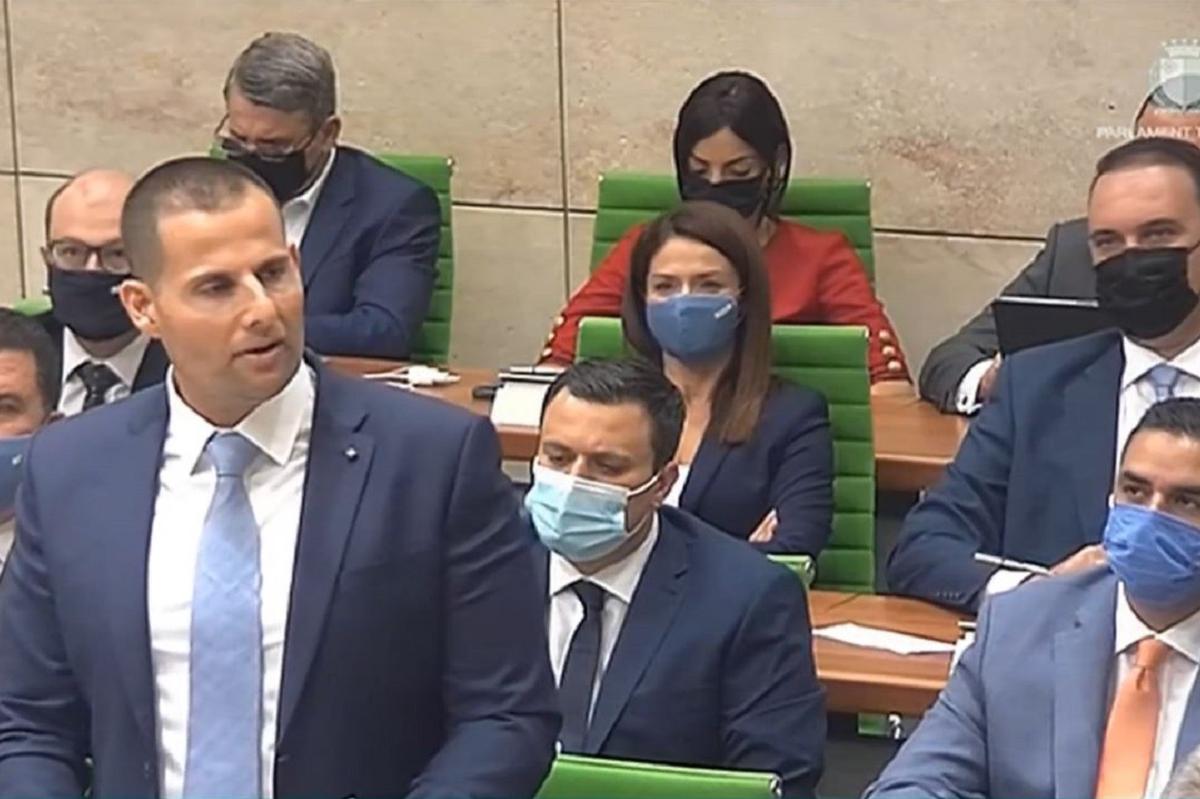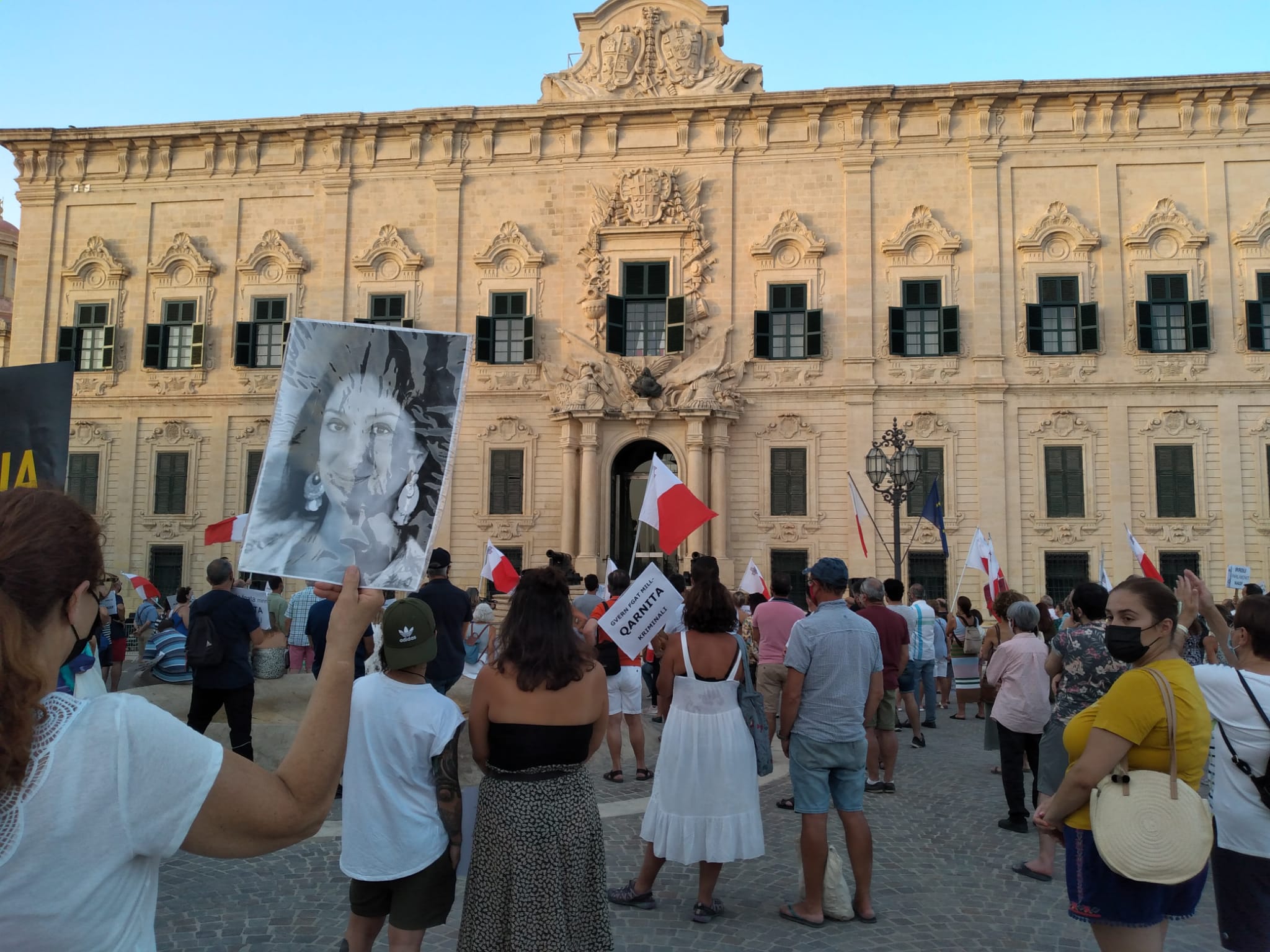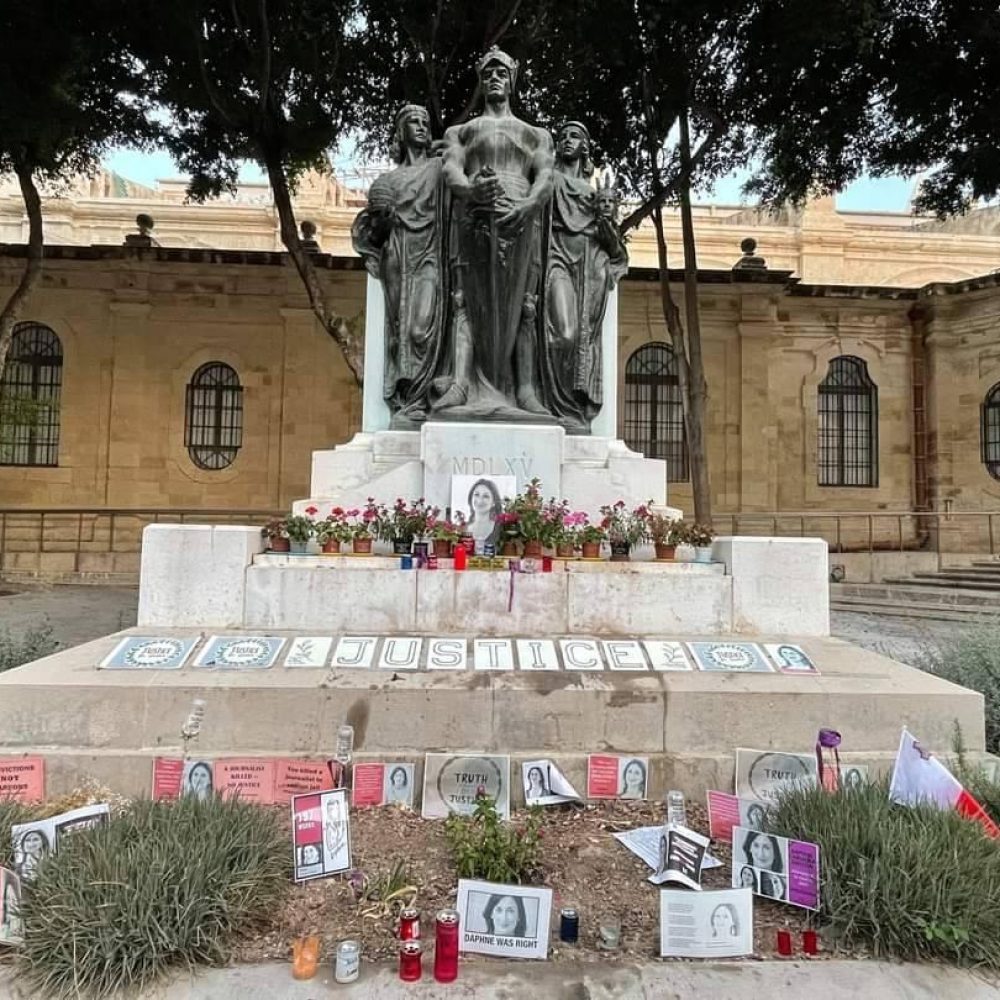The Maltese state is responsible for the brutal car bomb killing of journalist Daphne Caruana Galizia. That was the verdict of the public inquiry, which published its report last week.
By creating a climate of impunity where corrupt ministers were protected, where regulatory and law enforcement institutions were toothless, and where business interests colluded with politicians to promote lucrative large scale projects regardless of whether they were in the public interest, former prime minister Joseph Muscat and his inner circle engineered the collapse of the rule of law.
The inquiry found evidence “that powerful elements in public administration could have been involved in illegal activity which was the primary focus of the investigations of the murdered journalist”.
Such activity included “abundant proof of excessive closeness and intrigue between elements of public administration at the highest levels and influential businessmen interested in promoting large development projects” — projects like the Electrogas power station deal the journalist was investigating at the time of her death.
It also found ample evidence that the State failed to safeguard Daphne Caruana Galizia’s right to life.
The governing Labour Party’s propaganda machine didn’t waste any time circulating claims that the report proved the State did not play an active role in the actual murder. In doing so, they were trumpeting the inquiry’s clarification of its original mandate as proof of innocence.
The board made it very clear that their mandate did not cover such questions. Any proof of official involvement in the plot — the contract killing — or lack thereof must be established by the criminal courts.
Far from letting the government off the hook, the inquiry’s conclusions broadened the scope of responsibility for Caruana Galizia’s death to the entire Cabinet, who they found “collectively responsible” for doing nothing when corruption story after corruption story was reported in the media.
Instead, every member of Cabinet voted to retain the two men exposed by the Panama Papers — Energy Minister Konrad Mizzi and Chief of Staff Keith Schembri —because they were clearly being protected by the prime minister.
In doing so, they gave “silent approval” to the impunity at the heart of the Muscat administration. “Elements of organised crime relied on this impunity,” the board said, “and this culture certainly facilitated the assassination”.
These culpable officials did not leave when Muscat was forced to resign in disgrace in December 2019. Most of them are still in government. None have signalled their intention to resign or to accept any responsibility.
The disgraced former prime minister was fond of hiding behind the letter of the law, which was read as a de facto assertion that anything not specifically forbidden was acceptable.
The board of inquiry made it clear that excuses will not be found in the grey zone between behaviour that was illegal and behaviour that was ‘merely’ illicit, spelling out a definition that read like the Muscat playbook: “illicit behaviour (defined as ‘unacceptably bad behaviour such as bad public administration and governance, manipulative behaviour and conduct that is considered wrong, improper, abusive, oppressive, unethical, immoral and harmful that is not necessarily illegal’)”.
It is the role of journalists to expose such behaviour and to hold those in power to account, but rather than act on the information being revealed, the government treated Daphne Caruana Galizia as “the only opposition in the country”, and its State-funded attack dogs started treating her as the enemy.
“This direct confrontation reached its peak after the publication of the Panama Papers and the external circumstances surrounding the setting up of the foreign company known as 17 Black, when it became obvious that the journalist had obtained and was still receiving information that was most sensitive,” the report said. “Confrontation escalated up until the point at which she was assassinated.”
The board was “flabbergasted” by the alleged perpetrators testimony, noting the “cold-blooded way in which the crime was carried out”. The hired killers were so sure they’d get away with it that they bragged about “their contacts with ministers, the chief of staff, and other persons at the heart of power”, referring to them in court as ‘No. 1’, ‘the old man’, and ‘the king’.
Their confidence was not misplaced. Even after the murder, high-ranking police officials and public authorities acted “in a manifestly illicit way, if not illegally” to assist suspects by deflecting journalists from the details that were being uncovered.
The report ended with a long list of recommendations, most of which involve strengthening existing laws and passing other reforms on paper, but such laws are only as effective as the people tasked with enforcing them.
The government’s response did not convey a sense that those responsible for the deliberate criminal takeover of the State would be held accountable or prosecuted.
Prime Minister Robert Abela apologised to the family “for the state’s shortcomings”, as demanded by the inquiry board, but was careful to distance himself from the findings, opening his official apology with, “I was appointed prime minister after the public inquiry into the murder started”.
“The murder was a dark chapter in the history of Malta,” he said, “and it would be a shame if lessons are not learnt”.
Abela insisted he had not lost his legitimacy to govern, claiming his administration had drawn praise from the Council of Europe and the Venice Commission over reforms they implemented beneath the looming threat of assessments by the world’s anti-money laundering watchdogs — assessments which his government failed to pass.
When asked whether he would demand resignations, Abela said all members of government who had been mentioned in the inquiry were removed from their posts long ago. His obvious refusal to account for members of his own Cabinet who were also part of Muscat’s — and who bore collective responsibility, according to the inquiry — was a clear indication that any reforms enacted as a result of the public inquiry will not be a threat to the individuals implicated in it.
Abela made no mention of his predecessor, despite having been one of Joseph Muscat’s legal advisors and a member of the very same Cabinet the board deemed responsible for the journalist’s violent death. He had even attacked Daphne Caruana Galizia’s children for their campaign to acquire justice for their mother, accusing them of obstructing the investigation into her assassination. He has since “withdrawn” his comment posted on social media.

In his speech during a parliamentary debate on the report’s findings on Friday, prime minister failed to commit to a specific plan for the implementation of the board’s recommendations.
As for disgraced former prime minister Joseph Muscat who presided over the impunity that “like an octopus spread to other entities like regulatory institutions and the police, leading to the collapse of the rule of law”, he took to Facebook to make his own defiant statement in response to the report’s publication.
Muscat claimed he “paid the ultimate political price” by resigning “to shoulder responsibilities which were mine and also those which were not”. In a deliberate attempt to muddy the waters, he claimed the inquiry “unequivocally states that I was in no way implicated in the murder” despite the board having said very clearly that its mandate covered political responsibility and did not extend to criminal involvement in the murder plot.
The inquiry “failed to point out that I took the decision to seek another mandate in the following months [after the Panama Papers], where the electorate judged me even on how I managed the situation”.
In attempting to exonerate himself, Muscat inadvertently pointed out the greatest barrier to reform. The man who presided over the dramatic deterioration of his country’s international reputation failed to see that winning another electoral majority in a contest fought on allegations of corruption could be anything other than a condemnation of those who voted in favour of the rot because they hoped to benefit from it.
As protestors took to the square in front of the Office of the Prime Minister to demand accountability, the family of the slain journalist issued a statement describing the report as “a historic opportunity to ensure real change for the safety of journalists and to a process of national healing”.

They said the public inquiry’s findings confirmed their conviction from the start that the journalist’s assassination was “a direct result of the collapse of the rule of law and the impunity that the State provided” to the corrupt network on which she was reporting.
“We hope that the findings will lead to the restoration of the rule of law in Malta, effective protection for journalists, and an end to the impunity that the corrupt officials that Daphne investigated continue to enjoy.”
The International Press Institute said, “This is an important milestone in the long fight for justice – one which Daphne’s family fought hard for. But it’s vital that this report is not seen as a closure, but as the beginning of a vital process of national reconciliation for Malta.”
The government’s response — and the lack of resignations and arrests — made it clear that the fight for accountability is far from over.
The following project is weekly Maltese Roundups prepared by The Shift News (Malta) offering the latest news in Daphne Caruana Galizia case.

